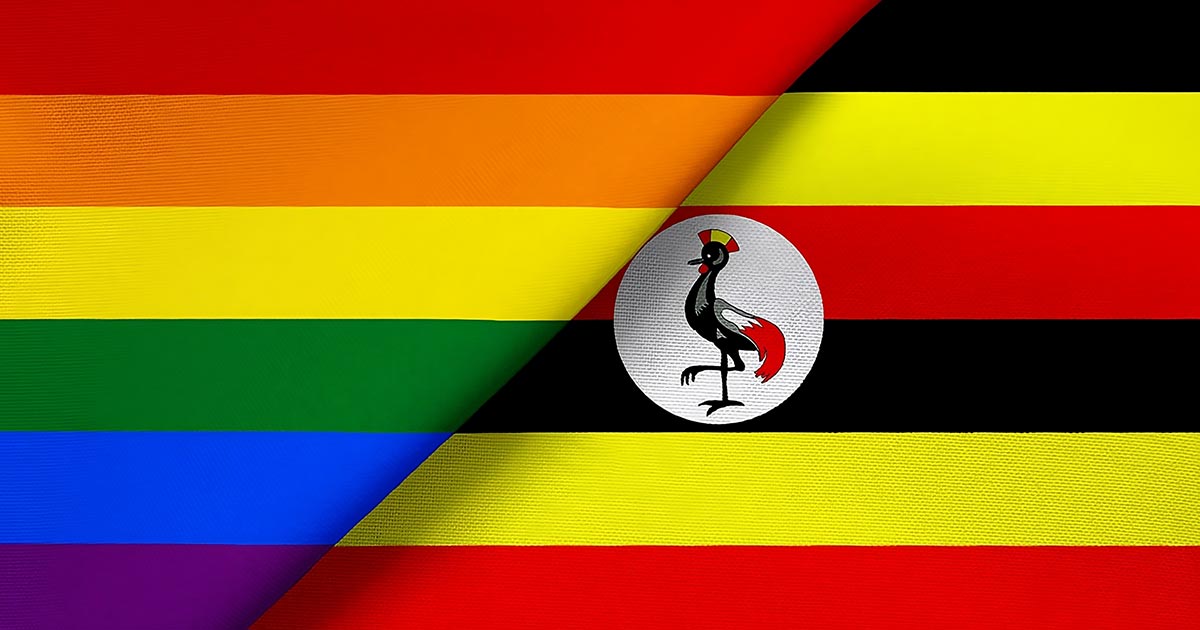Uganda: World Responds to Constitutional Court’s Shocking Assault on LGBTIQ+ Lives

The Constitutional Court of Uganda has come under fire from around the world for upholding the country’s draconian Anti-Homosexuality Act, one of the world’s most severe anti-LGBTIQ+ laws.
On Wednesday, the court rejected several applications to declare the law as a whole unconstitutional. It only annulled a few provisions that sought to jail landlords for renting to LGBTIQ+ individuals and that criminalised people who fail to report acts of homosexuality to the police and those who infect someone with a deadly disease through a homosexual act.
The law will thus continue to impose life imprisonment for engaging in homosexual acts and the death penalty for instances of “aggravated” homosexuality, while also jailing anyone who advocates for LGBTIQ+ rights.
In the summary outlining the basis for its ruling, the court only cited one case as justification for upholding the criminalisation of LGBTIQ+ Ugandans; the 2022 Dobbs v. Jackson US Supreme Court ruling that struck down the right to abortion in the US.
It’s been suggested that this could point to influence on Uganda’s Judiciary by the US extremist hate groups that funded that US Supreme Court abortion challenge.
Uganda’s LGBTIQ+ Community Calls for Further Cuts to Donor Funding
Ugandan LGBTIQ+ rights activists, under the banner of the Convening for Equality (CFE) coalition and including those who petitioned the court, condemned its devastating decision.
“While we respect the court, we vehemently disagree with its findings and the basis on which it was reached. We approached the court expecting it to apply the law in defence of human rights and not rely on public sentiments, and vague cultural values arguments,” said Nicholas Opiyo of Chapter Four Uganda. “The lives of Ugandan LGBTQ individuals are now in further peril for the ruling of the court.”
Activists revealed that since the law was enacted in May last year, there have been hundreds of reported human rights violations targeting LGBTIQ+ people. This includes more than 180 cases of evictions, 18 cases of forced anal examinations, 176 cases of violations of torture, 159 cases of violations of the right to equality and freedom of discrimination, and 102 hospitalisations.
Frank Mugisha, of Sexual Minorities Uganda and CFE-Co-Convener, described the court’s decision as “wrong and deplorable”. He asserted that “Uganda’s Constitution protects all of its people, equally” and “we continue to call for this law to be repealed.”
He urged governments, UN partners, and multilateral institutions such as the World Bank and the Global Fund to intensify their demand that the discriminatory law be struck down. He called for “further restrictions to donor funding for Uganda,” adding that “no donor should be funding anti-LGBTQ+ hate and human rights violations.”
“The Ugandan Judiciary cannot legislate the Ugandan LGBTIQ community out of existence,” added Clare Byarugaba, of Chapter Four Uganda and CFE Co-Convener. “We shall continue to pursue all legal means to ensure that the abhorrent law is repealed in all its entirety. Our human rights are inherent and non-negotiable.”
The World Speaks Out Against the Court’s Ruling
The UN High Commissioner for Human Rights Volker Türk expressed his dismay at the court’s decision.
“The Ugandan authorities must uphold the rights and dignity of all, regardless of sexual orientation or gender identity,” said Türk. “Criminalisation of and application of the death penalty to consensual same-sex relations are contrary to Uganda’s international human rights treaty obligations.”
In a statement, US Secretary of State Antony Blinken described the court’s nullification of several provisions of the Anti-Homosexuality Act as “small and insufficient steps…”
He asserted that: “The remaining provisions of the [act] pose grave threats to the Ugandan people, especially LGBTQI+ Ugandans and their allies, undermine public health, clamp down on civic space, damage Uganda’s international reputation, and harm efforts to increase foreign investment.”
Outright International Executive Director Maria Sjödin said the Constitutional Court’s ruling, “which relegates queer people to second-class citizenship, must not be the last word” and that “It is now incumbent upon Uganda’s Parliament to repeal this law.”
The organisation also called on the international community to explore deepening sanctions against Ugandan officials and institutions that are complicit in the law’s enactment. This includes visa bans, redirection of US government PEPFAR funds from government recipients to NGOs, and a continued revocation of the country’s AGOA trading status.
Disturbingly, the court’s backing of the Anti-Homosexuality Act may well have an impact far beyond Uganda. The law already inspired the recently passed anti-LGBTIQ+ bill in Ghana and the court’s stance is likely to further fuel efforts to enact similarly oppressive anti-LGBTIQ+ legislation in several other African countries.
Leave a Reply